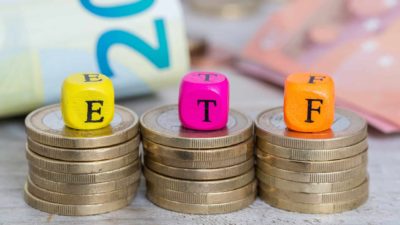Exchange-traded funds (ETFs) are a very popular choice for investors today, especially for younger investors. The ETFs that tend to be the most popular investments are index funds, such as the iShares Core S&P/ASX 200 ETF (ASX: IOZ). These funds blindly follow indexes like the S&P ASX 200 Index (ASX: XJO), which cover almost every company on the market. The good, the bad and the ugly, as it were.
But these broad, simple ETFs have been complemented in recent years by far more specific funds. As the ETF industry has grown, funds have popped up that cover almost any industry imaginable. There are ETFs that only hold gold miners, ETFs that hold healthcare companies, or ETFs that hold just silver bullion, for example.
Among the more popular 'thematic' ETFs out there are ones that focus on dividends income. Or at least companies that are supposed to pay high dividends.
So are these dividend ETFs a good investment? Let's take a look.
On the surface, an ETF that focuses on dividend income might sound like a great idea. After all, who doesn't love a good dividend? It represents 'free', passive income. And getting paid to just own something is a beautiful thing. Many investors, especially retirees, invest purely for dividend income too.
But unlike, say, an ASX 200 fund, which would basically be the same investment, no matter who provides it, not all dividend ETFs are equal.
A range of ASX dividend ETFs
Take the Vanguard Australian Shares High Yield ETF (ASX: VHY). This fund follows a benchmark index called the FTSE Australia High Dividend Yield Index. This ETF holds 64 ASX shares that, according to Vanguard, "have higher forecast dividends relative to other ASX-listed companies". The largest of these shares are currently BHP Group Ltd (ASX: BHP), Commonwealth Bank of Australia (ASX: CBA), Wesfarmers Ltd (ASX: WES), and the other 3 big four banks.
The iShares S&P/ASX Dividend Opportunities ETF (ASX: IHD) is another ASX dividend-focused ETF. But instead of the FTSE index, this fund uses the S&P/ASX Dividend Opportunities Index as its benchmark. Its objective is to invest in shares "that offer high dividend yields while meeting diversification, stability and tradability requirements". The largest of its 51 holdings are BHP, Wesfarmers, Woolworths Group Ltd (ASX: WOW), Fortescue Metals Group Limited (ASX: FMG) and Coles Group Ltd (ASX: COL).
Another, newer, income-focused fund available is the Vaneck Vectors Morningstar Australian Moat Income ETF (ASX: DVDY). This ETF tracks a new index again, this time the Morningstar Australia Dividend Yield Focus Index.
DVDY holds far fewer shares, with just 25 holdings. These holdings are selected as the "highest dividend paying ASX-listed securities (excluding Australian real estate investment trusts) that meet Morningstar's required criteria which combines its Economic Moat and Distance to Default measures". Wesfarmers is this fund's largest holding, followed by Transurban Group (ASX: TCL), Woolworths, Telstra Corporation Ltd (ASX: TLS) and APA Group (ASX: APA).
Same but different
All of these funds share something in common. They all offer higher trailing yields than what you could expect from a broad-market index fund such as the IOZ ETF mentioned earlier. However, they also share another, far less enviable trait.
The IOZ ASX 200 ETF has returned a cumulative performance (including both dividend returns and fees) of 10.13% per annum over the past 5 years. However, the Vanguard VHY ETF has returned an average of 8.52% per annum over the same period. The iShares IHD ETF has averaged 6.14% over the same time frame.
The Vaneck DVDY ETF has only been operating for less than a year. But it has delivered a return of 12.76% over the past 6 months. That normally isn't a great time frame to use, but that's what we've got. The IOZ ASX 200 ETF has returned 20.29% over that time period.
Foolish takeaway
The conclusion we can draw from this? ASX dividend-focused ETFs seem to come with a performance trade-off for the higher levels of income they produce. As the old saying goes, there's no such thing as a free lunch. It seems that principle applies for income investors too. So if you've been enchanted by the idea of an ASX ETF dedicated to passive dividend income, remember, there might be something you're giving up in return.








